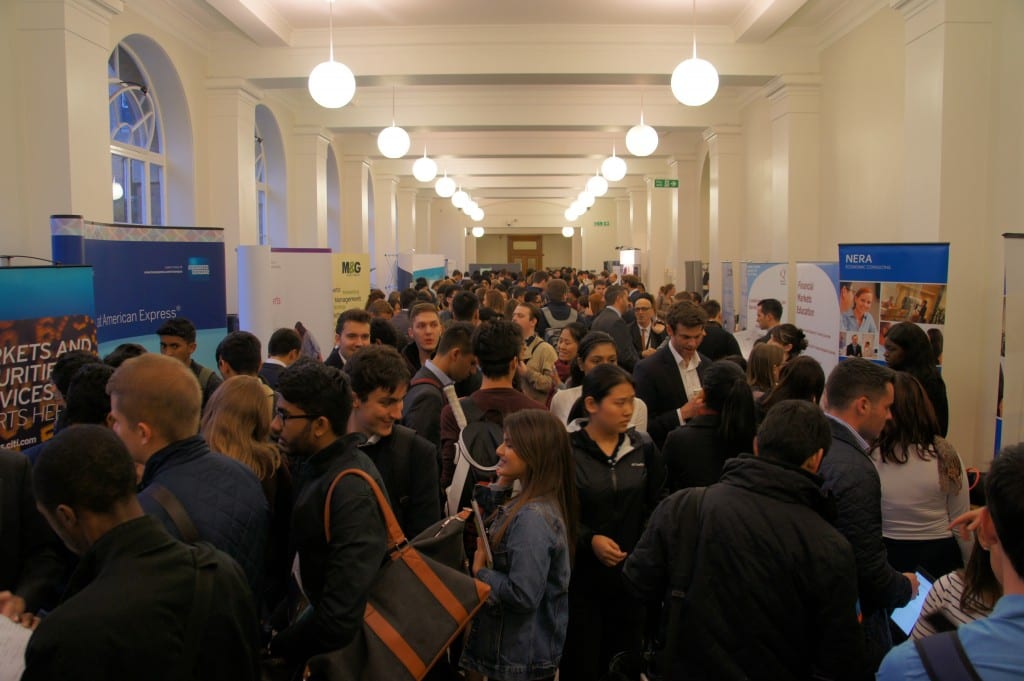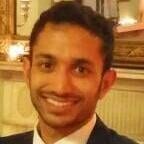Internships, placements, work shadowing….when it comes to selecting a career they’re all great ways to ‘try before you buy’. Some UCL PhD programmes contain a mandatory placement period, a few months where students must do something unrelated to their research. These prove invaluable to the students involved, so in this series of posts we hope to spread the career knowledge by speaking to three PhDs about their placement experiences.

Interview by Shadae Samuels, Placements and Vacancies Officer, UCL Careers.
Image taken from Chris Garcia.
Chris Penny is a current PhD student with the London Interdisciplinary Doctoral Training Programme. He is based in Sandip Patel’s lab and his PhD project is studying the molecular physiology and signalling functions of an intracellular ion channel. Through Chris’ project he was able to experience writing papers and reviews, which piqued his interest in potentially pursuing a career in publishing. This made publishing the perfect option for his PIPS placement to provide him with the opportunity to gain new skills and find out as much as possible about the industry. Chris secured a 12 week placement with Portland Press, a leading provider of high-quality publishing and knowledge dissemination solutions. He was supervised by the Executive Editor, Clare Curtis.
How did Chris secure his PIPS with Portland Press?
Chris initially researched a large number of publishing houses, he speculatively sent his CV and cover letter; he would then follow up his application with a phone call to the organisation. He found this approach was quite time-consuming and did not yield a high response, so Chris reached out to his own network for contacts in the publishing industry. Luckily Chris had a friend who previously worked at Portland Press Ltd and they put him in touch with a member of the editorial team. Chris organised an interview, and he was offered an internship starting a few months later. Chris would advise anyone applying for internships to utilise their contacts and be persistent in following up with the organisation. Having a contact in the organisation really helps with getting your application noticed!
What did the company look for in a placement student?
Portland Press wanted someone who was enthusiastic, willing to learn, and able to ‘have a go’ at a variety of tasks, some of which were mundane and others that would be more challenging. It was good to have someone who had little or no experience in the publishing industry so that they did not arrive with any preconceived ideas. The only requirement they had was for the intern to have scientific knowledge.
What did Chris do on his placement?
Portland Press is the wholly owned publishing subsidiary of the Biochemical Society, and produces the Biochemical Journal and Clinical Science, among other titles. It is a really exciting time to work there, with both the Society and the Press going through a number of changes to their look, systems and processes. Chris’ role mainly consisted of qualitative and quantitative data analysis, building upon his lab skills in the context of publishing. This included carrying out extensive citation analysis, looking at which research is high profile and which areas could be improved. Helping with the peer review submitted articles, Chris was able to generate strategies for expanding the research that is published by Portland Press, and he helped with commissioning experts to write the hot topics of the week.
What did Chris gain from the experience?
The placement was an opportunity for Chris to experience the other side of academic publishing. From the placement Chris gained commercial awareness, which he found particularly useful as this experience is very difficult to come by during a PhD. He improved on his analytical skills, market research skills by soliciting reviews, launching new content and searching for peer reviewers. Chris broadened his scientific interests as he was exposed to research in areas he was almost completely unaware of previously.
How did the placement contribute to Portland Press?
Portland Press is going through a period of significant change both in organisational structure and in processes. The work Chris undertook provided some foundations for future development of the department, and helped the creation of an overall strategy. The Biochemical Society is committed to the advancement of science for academics and students. Part of its ethos is to foster education and student opportunities. Therefore being part of the BBSRC PhD placement programme was the perfect way to meet this for Portland Press.
Has the placement influenced Chris’s career direction?
Since the start of his PhD Chris always wanted to go into post-doctoral work, however he enjoyed the editorial and strategic aspects of his placement. Therefore Chris would certainly consider joining an editorial board while in academia if possible, but would also consider working in publishing outside of academia. Chris has a better understanding of the publishing industry and hopes the experience will come in handy for articles he will publish in the future.
If you’re a UCL PhD or researcher wondering how to secure work experience or a more permanent post, book an appointment to speak with one of our advisers. And for advertised opportunities check out UCL Talent Bank and JobOnline.
 Close
Close






